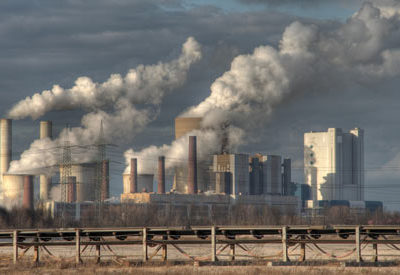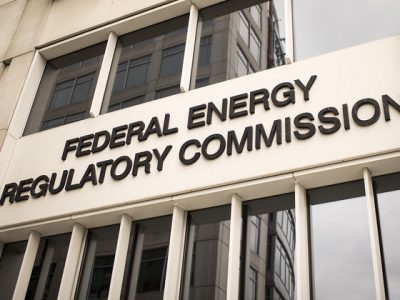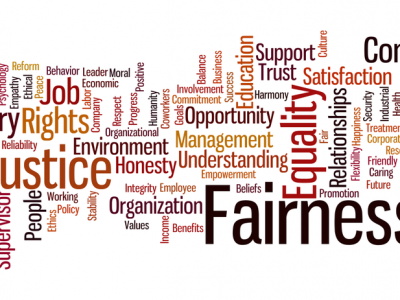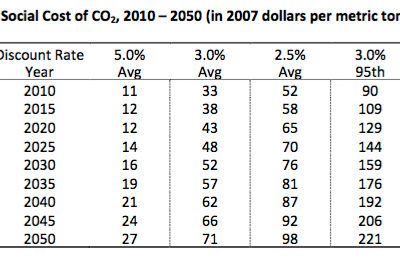Region: National
The Supreme Court Curbs Climate Action
The ruling in West Virginia v. EPA was about as good as we could expect given the makeup of the Court.
Today, the Supreme Court decided its most important environmental case since 2007. We didn’t dodge the bullet. It’s more than a flesh wound but it didn’t hit any vital organs . Chief Justice Roberts’s majority opinion leaves EPA other options to reduce carbon emissions from coal-fired power plants. It also gives a fairly narrow reading …
Continue reading “The Supreme Court Curbs Climate Action”
CONTINUE READINGUnquantified Benefits
How can the government account for benefits that it can’t measure?
Like it or not, quantitative cost-benefit analysis has been a key part of the regulatory process for forty years and seem likely to stay that way. Yet even economists admit that they don’t (yet) know how to put numbers on the value of some important regulatory benefits. But how can those qualitative assessments be combined …
Continue reading “Unquantified Benefits”
CONTINUE READINGWill Rights of Nature Save The World?
Examining whether granting legal rights to nature could make a difference in how courts understand environmental law
A number of environmental advocates have been pushing a new strategy for environmental protection – seeking to pursue legal rights for elements of nature (such as rivers, lakes, ecosystems, or species), sometimes in alliance with Native American tribes. This approach is not unique to the United States – rights of nature legal approaches have been …
Continue reading “Will Rights of Nature Save The World?”
CONTINUE READINGTwo FERC Cases and Why They Matter
Last week’s D.C. Circuit cases illustrate why environmental lawyers need to understand FERC.
The Federal Energy Regulatory Commission (FERC) has been called the most important environmental agency that no one has heard of. At the end of last week, the D.C. Circuit decided two undramatic FERC cases that illustrate FERC’s environmental significance. One involved a bailout to coal and nuclear plants, the other involved water quality. The first …
Continue reading “Two FERC Cases and Why They Matter”
CONTINUE READINGEquity Weighting: A Brief Introduction
An unfamiliar concept for most that just might make cost-benefit analysis more progressive.
A technique called equity weighting could make regulation more progressive. Implementing this technique may be harder than it sounds, however, for a variety of practical, legal, and political reasons. Agencies might do best to use equity weighting as a way to check their regulatory decisions rather than as their main decision tool.
CONTINUE READINGWhose Interests Count? And How Much?
Whether to consider harms to foreign countries and future generations is controversial. So is how much weight to give harm to the poor.
Should regulators take into account harm to people in other countries? What about harm to future generations? Should we give special attention when the disadvantaged are harmed? These questions are central to climate policy and some other important environmental issues. I’ll use cost-benefit analysis as a framework for discussing these issues. You probably don’t need …
Continue reading “Whose Interests Count? And How Much?”
CONTINUE READINGAn Abundance Research Agenda
If we need to build lots of things fast to address climate and housing crises, how will we do that?
There’s been a lot of buzz about this column by Ezra Klein in the New York Times. Klein’s basic argument: We need to do a lot of infrastructure and other development projects to make the world a better place. For example, we’ll need to build power lines and renewable projects to address climate change. But …
Continue reading “An Abundance Research Agenda”
CONTINUE READINGWill public power advance decarbonization?
Increasing public control of energy systems may not facilitate decarbonization
Over the past few years, there has been a push in both Europe and the United States for a “Green New Deal” in which decarbonization efforts would be pushed by aggressive, direct government investments in clean energy technology and infrastructure. But in much of the United States and in Europe, large portions of the electricity …
Continue reading “Will public power advance decarbonization?”
CONTINUE READINGAdvancing renewables through electricity restructuring
Reducing barriers to siting new electricity generation can help advance renewable energy production
Our electricity system will be crucial to decarbonization efforts, both because much of our current energy comes from electricity, and because decarbonizing sectors like transportation will require significant electrification. And electricity is the sector where we have had the most success in decarbonization so far in the United States. But there is still more to …
Continue reading “Advancing renewables through electricity restructuring”
CONTINUE READINGProtecting the federal estate
Understanding the Property Clause’s location in Article IV clarifies the power of Congress and the federal government to protect public lands
In my previous blog post, I discussed how the location of the Property Clause in Article IV can help answer key debates about congressional versus executive power under the Clause, as well as federal versus state power under the Clause. Here I want to draw on the principles I developed in the prior blog post: …
Continue reading “Protecting the federal estate”
CONTINUE READING








